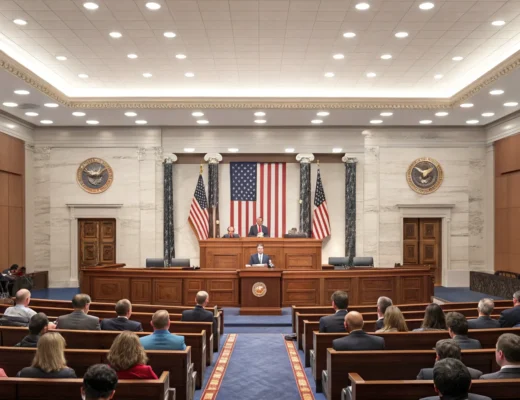Indian Prime Minister Narendra Modi is gearing up to affirm his office oath for his third term on June 8. However, his political party, Bharatiya Janata Party (BJP), no longer holds the parliamentary majority. This presents a potential hurdle for Modi’s administration, which is determined to drive India to unparalleled heights of progress.
Despite potential obstacles, Modi insists on a pragmatic yet ambitious
plan for India’s economic resurgence post-pandemic. To overcome this, he is rallying smaller parties and independent lawmakers to gain sufficient support. The support received from these alliances has proven essential for the BJP’s governance capabilities and legislation facilitation.
These collaborations have led the BJP to advance in various key governance areas this term strategically. This shared responsibility sets a working model for striving to meet their mutual political objectives. This accomplishment speaks volumes about the party leaders who managed to maintain these relationships while ensuring governance effectiveness.
Political analysts denote that the election outcome might sway the government’s reformative path in a significant way.
Modi’s journey for third-term amid challenges
If the opposition party comes into power, a major pushback on the current government’s policies might be expected. Economic policies, climate agendas, and foreign affairs could witness drastic changes. Such transformations could unsettle established frameworks, provoking intense discussions and potential confrontations.
Meanwhile, a graphical representation highlights the political hurdles of the Modi government
post losing their majority. The shrinking saffron area and surging blue zone signify BJP’s dwindling strength and the rising power of the opposition in Parliament. This shift towards the opposition foreshadows potent legislative hurdles, escalating the challenges for the Modi government.
Globally similar abrupt political shifts are evident, adding to the intricacies of the political landscape. Amid these worldwide shifts, fostering dialogue and compromise in the pursuit of stable governance and development becomes pertinent.
Journalists Rishika Sadam & Bharath Rajeswaran, with editors Shilpa Jamkhandikar, Raju Gopalakrishnan, and Alex Richardson, have been instrumental in uncovering these ongoing political transformations. Their insightful reporting and keen editorial scrutiny provide an
essential understanding of the evolving political context.







